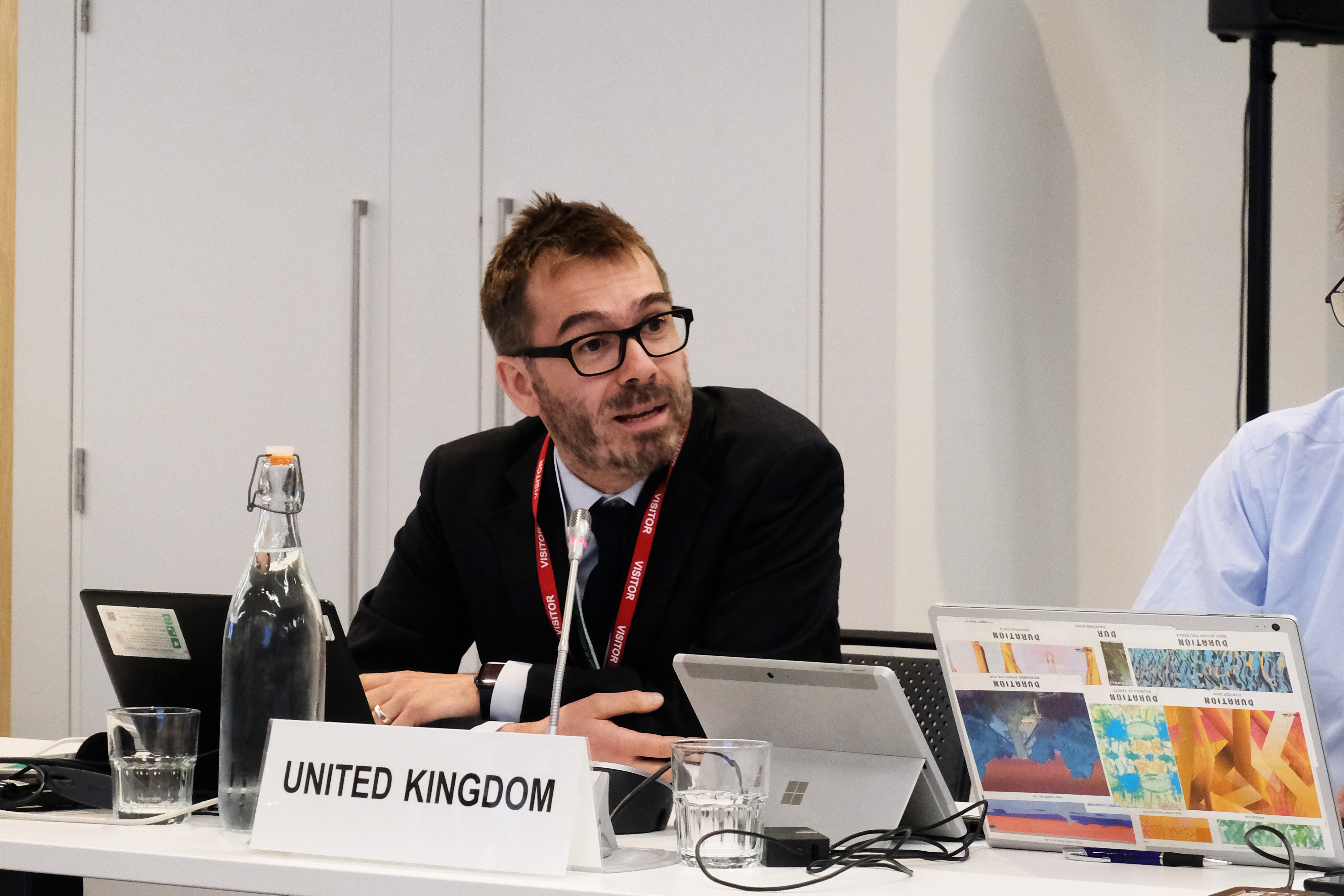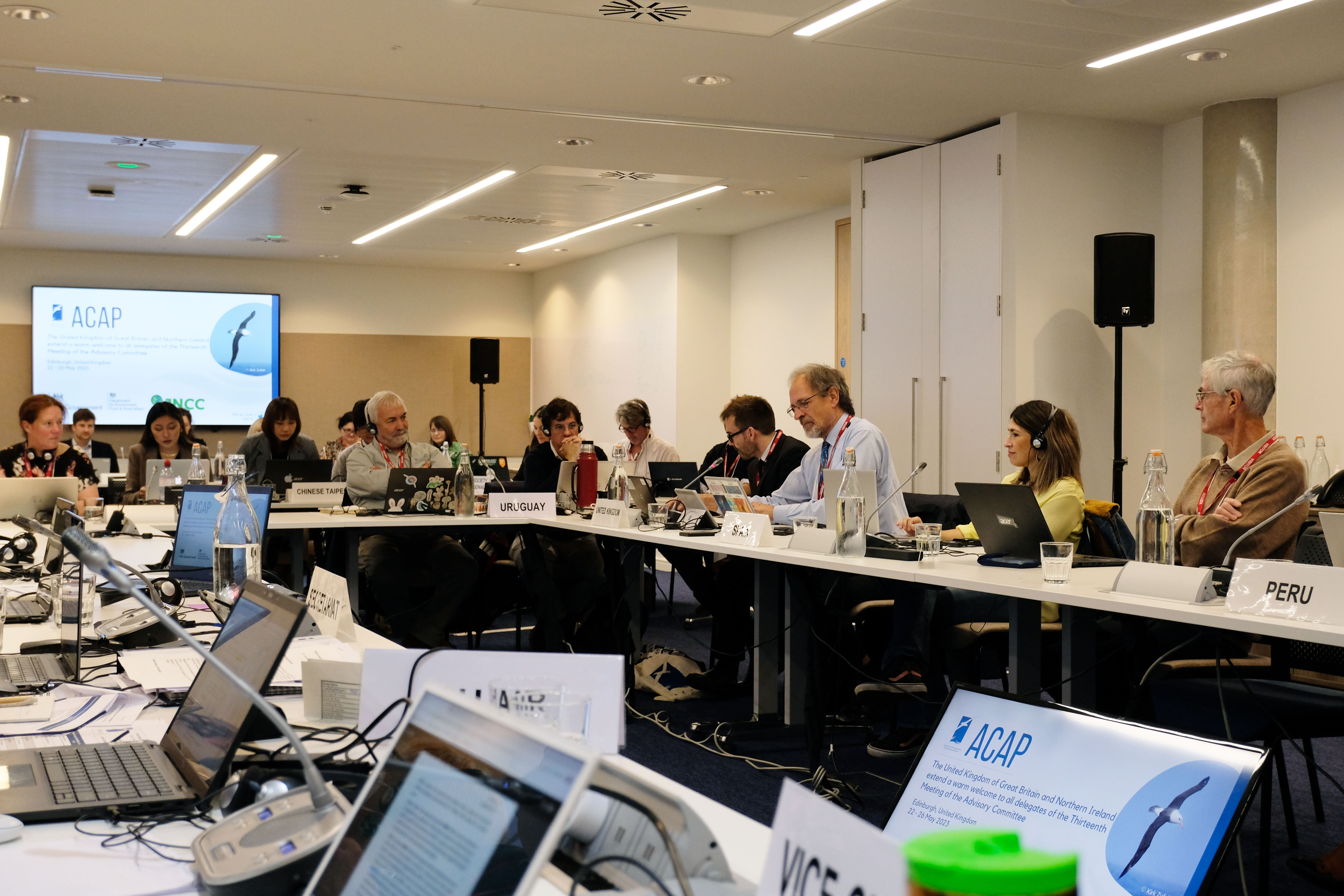 Dr Will Lockhart delivers his opening remarks to delegates of the Thirteenth Meeting of the Advisory Committee (AC13) confirming the UK's committment to the Agreement and encouraging Parties to work together towards its objectives
Dr Will Lockhart delivers his opening remarks to delegates of the Thirteenth Meeting of the Advisory Committee (AC13) confirming the UK's committment to the Agreement and encouraging Parties to work together towards its objectives
Dr Will Lockhart, Deputy Director, International Biodiversity and Wildlife, Department for environment, food and rural affairs welcomed delegates on Monday to ACAP’s Thirteenth Meeting of the Advisory Committee (AC13). The four-day meeting is being hosted for the first time by the United Kingdom in the Scottish capital, Edinburgh.
Addressing delegates, Dr Lockhart welcomed Parties and Observers to the meeting and acknowledged the global conservation effort already underway, whilst recognising the challenges still facing ACAP to protect its listed albatross and petrels.
“A huge amount of valuable work is being undertaken across Parties to protect these special birds, “he said. “But many albatross and petrel populations are still as you know in deep crisis. And there is much more we can and should be doing to further support the conservation of these iconic species.”
He confirmed the United Kingdom’s commitment to the Agreement pointing to projects to eradicate rodents at breeding sites and the implementation of strong bycatch mitigation measures in fisheries.
 The meeting commences
The meeting commences
Wider conservation efforts were also highlighted, such as the £3 billion the UK has earmarked for spending by 2025, “to protect nature internationally – through bilateral aid, contributions to multilateral aid programmes, or by helping generate new, sustainable and innovative forms of nature finance, including by working with businesses to ensure that they better price their dependencies on nature.”
He encouraged Parties to work together in the spirit of collaboration in order to realise and drive forward the Agreements’ objectives, noting the importance of engaging with the fishing industry.
“Our work can only be successful if we work together. In particular, we need to identify further actions that can be taken to strengthen collaboration with Regional Fisheries Management Organizations and CCAMLR, both of which are critical to the success of the Agreement, or to ensure that data collection can be improved so that the scale of bycatch and other pressures on ACAP species can be better understood and mitigated. We also need to drive our wider governments to make sure that they are living up to their commitments under the Agreement and doing our best to implement the best practices we develop in collaboration with each other. “
23 May 2023

 English
English  Français
Français  Español
Español